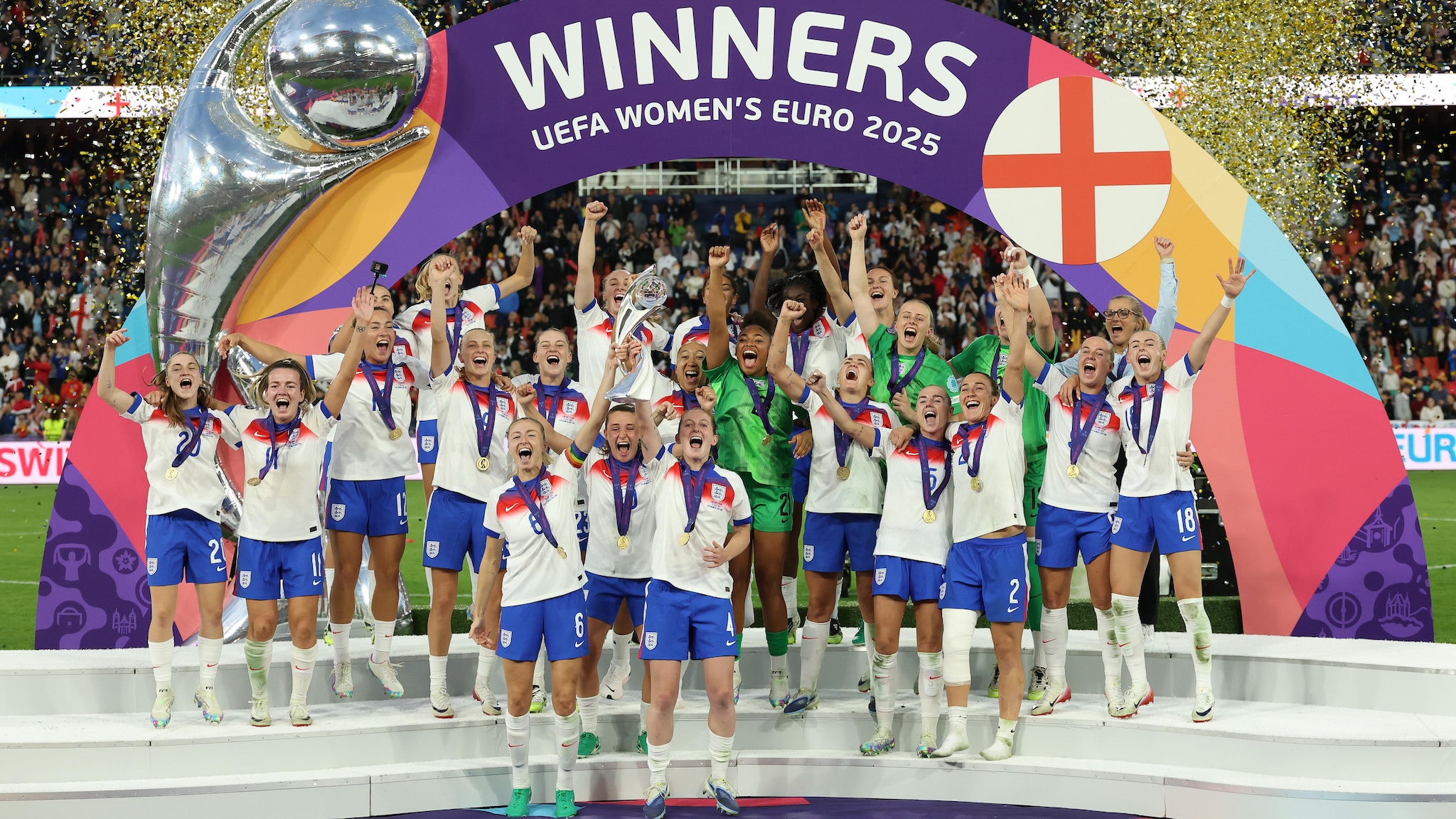
Before the Women`s Euro kicked off, many had tipped Spain, fresh off their Women`s World Cup triumph, as the likely champions. Their formidable attacking prowess and captivating playing style made them strong contenders. Reaching the final was anticipated, as was Mariona Caldentey`s early goal, giving them the lead twenty-five minutes into the match.
However, the anticipated Spanish coronation never materialized.
Instead, in a dramatic conclusion to the Women`s Euro, England secured back-to-back titles. Alessia Russo`s equalizer in the 57th minute and two crucial saves from Hannah Hampton in the penalty shootout sealed their victory. Despite being reigning champions, the Lionesses embraced an underdog role on Sunday, ceding possession to Spain and opportunistically seizing their chances. Falling behind in the first half was not an issue, as they had frequently recovered from deficits throughout the tournament, holding the lead for less than five minutes in the knockout stage. Notably, England managed no shots in 30 minutes of extra time, strategically playing for the shootout, which ultimately favored them despite missing two spot kicks themselves.
This victory was hard-fought and less glamorous, a surprising outcome for a team known for dynamic attackers like Russo and breakout star Michelle Agyemang, who also claimed the Best Young Player award.
Coach Sarina Wiegman`s decision to adopt a more conservative strategy against Spain`s fluid play proved vindicated. While unexpected pre-tournament, this pragmatic approach, often employed by elite managers in high-stakes finals, was in some ways an obvious tactical choice. Ultimately, the onus was on Spain to devise a counter-strategy for such a predictable defensive setup.
While the World Cup winners cruised to the semifinals, their defeat to England, coupled with a challenging extra-time victory over Germany, highlighted a potential one-dimensional aspect to their current play. Spain excels when circumstances favor them, showcasing their exceptional ability to dominate possession, outpass opponents, and convert chances. This was evident in the first half of the final, where they largely controlled the game against England, outpossessing, outpassing, outshooting, and outscoring them.
However, Wiegman`s side successfully disrupted Spain`s intricate passing game, forcing them into their own half more often and compelling them to resort to long balls, a departure from their preferred short, precise passes.
Displaying newfound defensive resilience, England restricted Spain to just five shots on target from 22 attempts. They patiently sought opportunities to exploit Spain`s less tested defense. This strategy was particularly evident in extra time, where England registered no shots but effectively nullified Spain, allowing them zero shots on target and less than one expected goal from five attempts.
Defenders Leah Williamson and Jess Carter were pivotal figures in Basel, epitomizing the steeliness that defined England`s championship run. Carter`s stellar performance, particularly after being reinstated into the lineup following the semifinal, was commendable, especially given the racist abuse she endured during the week. Her strong showing, backed by teammates and opponents, marked a career highlight.
This victory was one of many surprises in a tournament that saw Italy reach the semifinals for the first time since 1997 and the Netherlands exit in the group stage. This sense of unpredictability, a unique and resounding feeling of imperfection, might be the competition`s most enduring legacy. As record attendances and viewership figures underscore the undeniable upward trajectory of women`s soccer, they also foster an exciting, on-field unpredictability.
The Women`s Euro witnessed a shift in power dynamics, with emerging teams like Italy overcoming historical giants like Norway, and England avenging their World Cup final loss to Spain. A prevalent sense of imperfection permeated the tournament; while several teams had their moments, none appeared truly complete. Both finalists, in particular, showcased weaknesses almost as clearly as their strengths.
This perfectly unpredictable tournament ignites unique excitement as the countdown to the 2027 World Cup officially begins. Had Spain dominated, they might be overwhelming favorites for Brazil 2027, but Coach Montse Tome`s squad clearly has areas for development. England, meanwhile, joins a lineage of successful yet imperfect championship teams. Numerous other thrilling uncertainties lie ahead: the U.S. Women`s National Team is nurturing a new generation for 2027, while hosts Brazil aim for a significant impact in South America`s first Women`s World Cup. The pressure is mounting for these teams, as well as ambitious hopefuls aiming to qualify for Brazil.
Two years after the most competitive Women`s World Cup to date, the quality of play on the field is unmistakably moving in a positive direction, even if it embodies a wonderfully imperfect nature.







